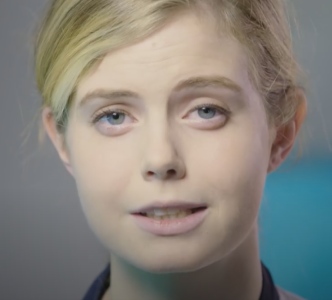-
Courses

Courses
Choosing a course is one of the most important decisions you'll ever make! View our courses and see what our students and lecturers have to say about the courses you are interested in at the links below.
-
University Life

University Life
Each year more than 4,000 choose University of Galway as their University of choice. Find out what life at University of Galway is all about here.
-
About University of Galway

About University of Galway
Since 1845, University of Galway has been sharing the highest quality teaching and research with Ireland and the world. Find out what makes our University so special – from our distinguished history to the latest news and campus developments.
-
Colleges & Schools

Colleges & Schools
University of Galway has earned international recognition as a research-led university with a commitment to top quality teaching across a range of key areas of expertise.
-
Research & Innovation

Research & Innovation
University of Galway’s vibrant research community take on some of the most pressing challenges of our times.
-
Business & Industry

Guiding Breakthrough Research at University of Galway
We explore and facilitate commercial opportunities for the research community at University of Galway, as well as facilitating industry partnership.
-
Alumni & Friends

Alumni & Friends
There are 128,000 University of Galway alumni worldwide. Stay connected to your alumni community! Join our social networks and update your details online.
-
Community Engagement

Community Engagement
At University of Galway, we believe that the best learning takes place when you apply what you learn in a real world context. That's why many of our courses include work placements or community projects.
Data Analytics and Visualisation (PDip)

Course Overview
This course is designed to reskill and upskill graduates to prepare them to take up the increasing opportunities to work as data analysts, who are in demand across multiple sectors, including Financial, Government, Manufacturing, Food, Health and Media.
Course detail is at: https://springboardcourses.ie/details/11023.
The course emphasises the development of strong theoretical and applied foundations, and builds on our existing strengths in Data Science and Analytics in the School of Computer Science and the Insight Institute, and our experience in running a successful Masters in Data Analytics.
The programme has a number of core elements:
- Immersion in fundamental database and software development techniques.
- A solid foundation in statistical and analysis methods.
- Expertise in data analysis, visualisation and business intelligence using leading edge tools and programming languages.
- Capstone project to deepen and demonstrate students’ acquired skills.
- A significant placement/internship allowing participants to gain relevant experience and also provide Industry Partners with an opportunity to assess potential recruits.
On completion of the programme, graduates will be eligible to take our highly successful MSc Data Analytics, MSc Artificial Intelligence, and MSc Adaptive Cybersecurity, providing a deeper and more specialised training in advanced Data Science, Artificial Intelligence, and Cybersecurity topics such as Machine Learning. Transition to these programmes is contingent on spaces and achieving a minimum of a high 2:1 in the Postgraduate Diploma at the discretion of the programme director.
This programme is funded by the Higher Education Authority Human Capital Initiative, Pillar 1*, Graduate Conversion initiative. For applications who are in employment the HEA will fund 90% of the course fee, with the balance to be provided by the application or her/his employer. Recent graduates will also pay 10% of the cost of the course. Apply now, for funded positions, via Springboard.
Applications can also be made (non-funded positions) through the University of Galway Postgraduate Admissions page.
--
You may also be interested in one of our other School of Computer Science postgraduate programmes.
Applications and Selections
Who Teaches this Course
Requirements and Assessment
A range of assessment methods are integrated and applied through the programme. These include continuous assessment, projects, reports presentations and case studies.
Key Facts
Entry Requirements
Applicants are normally required to hold a minimum of a Level 8 honours qualification (2.2 or higher) or equivalent in a cognate discipline. Graduates with a Level 7 degree and relevant practical industry experience in the area of computing and information technology will also be considered. Graduates from non-STEM (Science, Technology, Engineering, and Mathematics) disciplines such as languages will be welcomed, but will need to demonstrate an aptitude for logical thinking and problem solving. The application process will include interviews and/or aptitude tests, given that the placement is a key element of the programme.
The programme is in line with the University Policy for Recognition of Prior Learning in that it recognises prior academic qualifications. The aim of this initiative is to provide graduates with the opportunity to acquire qualifications for employment in the data analytics field. RPL applications are also welcome and can be completed by contacting the Programme Director.
Additional Requirements
Recognition of Prior Learning (RPL)
The programme is in line with the University Policy for Recognition of Prior Learning in that it recognises prior academic qualifications. The aim of this initiative is to provide graduates with the opportunity to acquire qualifications for employment in the data analytics field. RPL applications are also welcome and can be completed by contacting the Programme Director.
Duration
1 year, full-time
Next start date
September 2025
A Level Grades ()
Average intake
20
QQI/FET FETAC Entry Routes
Closing Date
No set closing date. Offers made on a continuous basis.
NFQ level
Mode of study
ECTS weighting
60
Award
CAO
Course code
PGD-DDV
Course Outline
The programme is delivered over a 12-month period. The first two semesters consist primarily of taught modules, which have a high continuous assessment and practical aspect. The first semester focuses on creating a strong foundation in the Computer Science and Statistical techniques, including: Databases, Internet Programming, Interaction Design, Statistics for Data Science, and Python Programming.
The second semester focuses on deepening skills and applying them to real-life problems. The content includes Programming for Data Science, further Statistics for Data Science, Data Visualisation techniques, and Business Data Analytics theory and applications using widely used commercial tools.
A major aspect of the programme is the Data Analytics and Visualisation Project in which students work on a real-life data analytics and visualisation problem. This work will, where possible, be conducted in conjunction with the work placement company, resulting in the production of the final report and presentation of the project at the end of the work placement. The Work Placement will take place from the end of semester 2 until end August.
[an error occurred while processing this directive]Why Choose This Course?
Career Opportunities
The Postgraduate Diploma in Data Analytics responds to a strong and growing demand for graduates with skills in data analysis across all industry sectors. Every industry has seen a huge growth in the amount of data which they generate and collect, which represents a very valuable resource for companies. Demand for workers with specialist data skills like data scientists and data engineers has increased dramatically over the past five years according to recent surveys. Roles that will be suitable for graduates of this programme include:
- Data Analysts
- Data Visualisation Specialists
- Data Engineers
- Data Scientists
- Business Analytics Specialist
- Business Intelligence Developer
Who’s Suited to This Course
Learning Outcomes
Transferable Skills Employers Value
Work Placement
Study Abroad
Related Student Organisations
Course Fees
Fees: EU
Fees: Tuition
Fees: Student levy
Fees: Non EU
For Students Eligible for HCI Pilar Funding: There are no tuition fees for DEASP customers or returners but any subsequent costs such as travel, and course materials must be borne by the participant
*A 10% course fee contribution (€650) for graduate conversion courses is applicable for employed participants and recent graduates.
The formerly self-employed not in receipt of a DEASP payment must also pay 10%. This is payable directly to the provider.
For further details see https://springboardcourses.ie/faq.
Find out More
Dr Adrian Clear
E: adrian.clear@ universityofgalway.ie
https://springboardcourses.ie/details/11023





















